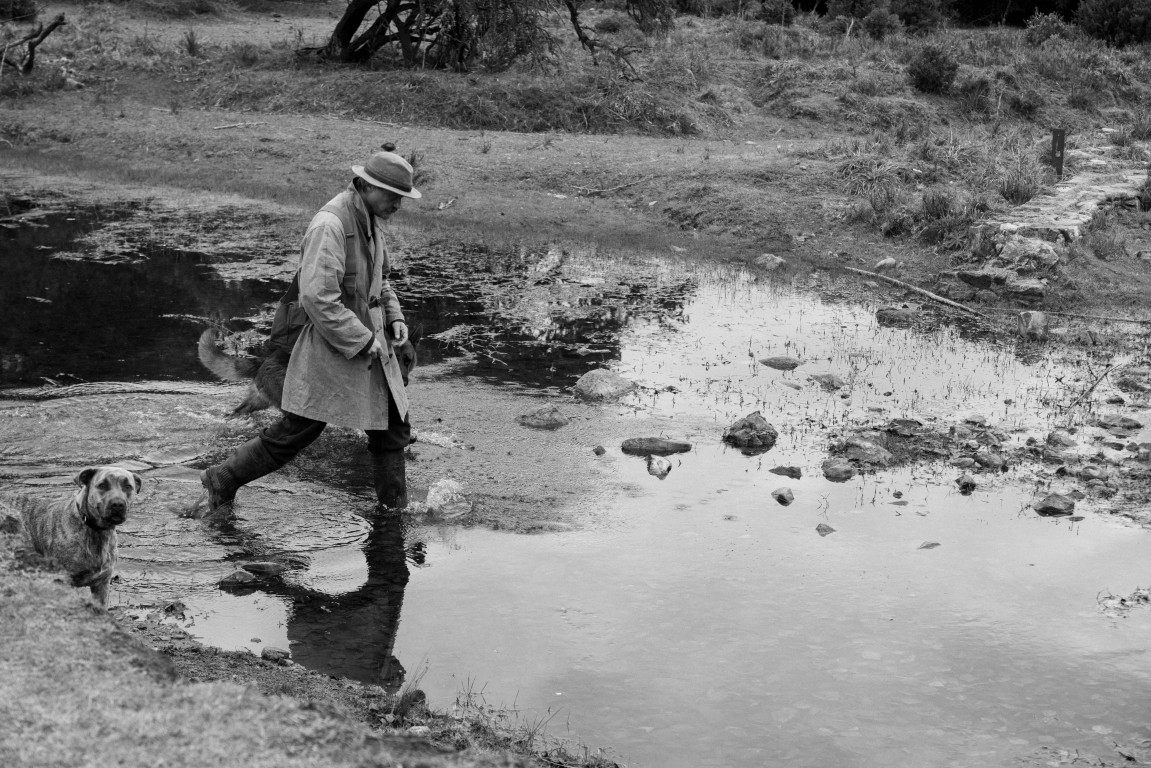Jodie Foster is known to be fluent in French, but Rebecca Zlotowski’s film “A Private Life,” showing out of competition, is said to mark her first time playing a leading role in the language. It’s a good fit, as her character, Lilian Steiner, is an American by birth. Lilian has lived in France for decades, but her capacity for reading nuances may still be slightly off.
Then again, that blind spot may simply be a part of who she is. A psychiatrist, Lilian appears to have grown bored with her work; she takes a high-handed attitude when a patient stops by to complain that a hypnotist cured him of his smoking habit in a way that Lilian couldn’t. Then Lilian learns that a longtime patient, Paula (Virginie Efiria), has died by suicide. And when Lilian pays a shiva call, Paula’s husband, Simon (Mathieu Amalric), is enraged. He apparently blames Lilian for the death.
But Lilian is suspicious—she had never pegged Paula as a danger to herself—and believes the supposed suicide may actually be a murder. From this setup, Zlotowski, who wrote the screenplay with Anne Berest and Gaëlle Mace, combines a slightly silly mystery plot (Lilian’s ex-husband, an ophthalmologist played by Daniel Auteuil, joins her in sleuthing) with a slightly muddled character study. Lilian reflects on her identity (both Paula and Lilian’s families are Jewish), her feelings (it’s possible she was in love with Paula), and whether she truly is as perceptive about other people as she thinks.
The tone is uncertain and at times just plain off; there’s a mortifyingly goofy sequence in which Auteuil’s character turns up at Simon’s house and pretends to be out of gas so that Lilian can snoop around the premises. And as welcome as an opening-credits blast of “Psycho Killer” was at a morning screening, the song rocks much harder than the film does.
The highlight of the movie is actually a scene in English between Foster and the great documentarian Frederick Wiseman, who plays her former psychiatrist, a mentor figure, and one of the few people willing to call out Lilian’s self-deceptions. Wiseman also appeared in Zlotowski’s “Other People’s Children,” in which he played a gynecologist who was somehow still practicing, even though Wiseman is in his nineties. The casting here is much less ridiculous: Wiseman’s documentaries are all about seeing people—and society—clearly.
Kirill Serebrennikov, a Russian director in exile generally regarded as a foe of the Putin regime, has had four features play in competition since 2018 alone. (His exasperating “Limonov. The Ballad” competed last year.) This year, Serebrennikov has landed in the Cannes Premiere section with “The Disappearance of Josef Mengele,” an adaptation of a novel by Olivier Guez that imagines the years that Mengele, the Nazi physician who conducted monstrous “experiments” on prisoners at Auschwitz, spent hiding from justice in South America.
Typically for this filmmaker, the movie has a sprawling—detractors might say structureless—narrative that juggles timelines and locations. The prologue, set in 2023, shows medical students examining Mengele’s skeleton. The rest of the film follows Mengele (played by August Diehl) as he lives in Argentina and Brazil over a period of 20 years, from the 1950s through the 1970s, sometimes openly socializing with fellow Nazis in hiding. He even returns covertly to West Germany in 1956.
Serebrennikov defers flashbacks to the war itself for a while, but when they come, the film suddenly shifts from black-and-white into color. One strand follows Mengele’s son, Rolf (Max Bretschneider), as he secretly travels to São Paulo in 1977. Mengele spouts unmitigated Nazi propaganda at him as if no time has passed at all. When Rolf demands that his father tell him whether he did the things he was accused of, Serebrennikov cuts to a horrifying 16-millimeter reel depicting Mengele’s so-called research at Auschwitz.
As is his custom, Serebrennikov, who also wrote the screenplay, fills his movie with lengthy tracking shots. (The director is so prolific that you sometimes have to wonder whether he shoots scenes this way simply to avoid multiple setups.) His perspective on Mengele isn’t revelatory in itself; to watch the movie is to experience mounting disgust that the man could live unrepentantly for so long and, unlike Adolf Eichmann, avoid a trial during his lifetime. But a Russian filmmaker’s portrait of failed accountability for war crimes has obvious echoes in the present.
Read More Details
Finally We wish PressBee provided you with enough information of ( Cannes 2025: A Private Life, The Disappearance of Josef Mengele )
Also on site :
- Which Tiny “Purse” Dog Breed Are You, Based on Your Zodiac Sign
- Nike’s Jordan brand chairman hid his criminal past for 40 years. Now he wants CHROs to consider second chances
- Ex-Wives of Legendary Rocker, 81, Run Into Each Other at London Event

